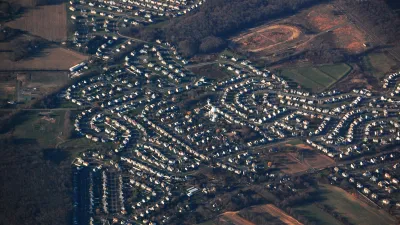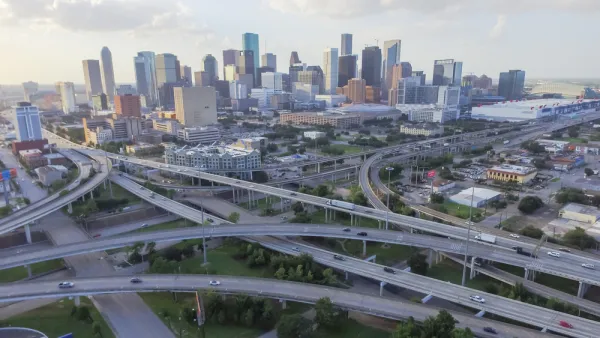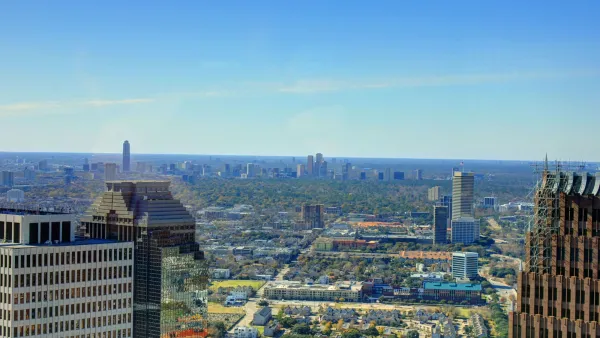Compared with European averages, U.S. and Canadian residents spend 30-50 percent more money and time on transport due to dispersed, automobile-dependent development.

According to data published by economists Stephen Redding and Matthew Turner, the average American household spent approximately 18 percent of its budget on transportation compared with just an average of 12.8 percent among its peer. That means a typical U.S. household spent about five percentage points more of its income, about $1,500 annually, on transportation than the residents of other developed countries.
Table courtesy of City Observatory.
Similarly, the average American worker spent about 51 daily minutes commuting, compared with 39 average daily commute minutes for all other countries. This means that over the course of a year with 250 working days, the typical American commuter spends about 51 more hours commuting than workers in other high income countries. Valued at $15 per hour, the additional cost of commuting to US workers comes to $770 per worker worker per year.
While there may be other reasons for these disparities, they probably reflect American cities' more sprawled, automobile-dependent development patterns.
FULL STORY: Sprawl Tax: How the US stacks up internationally

Analysis: Cybertruck Fatality Rate Far Exceeds That of Ford Pinto
The Tesla Cybertruck was recalled seven times last year.

National Parks Layoffs Will Cause Communities to Lose Billions
Thousands of essential park workers were laid off this week, just before the busy spring break season.

Retro-silient?: America’s First “Eco-burb,” The Woodlands Turns 50
A master-planned community north of Houston offers lessons on green infrastructure and resilient design, but falls short of its founder’s lofty affordability and walkability goals.

Test News Post 1
This is a summary

Analysis: Cybertruck Fatality Rate Far Exceeds That of Ford Pinto
The Tesla Cybertruck was recalled seven times last year.

Test News Headline 46
Test for the image on the front page.
Urban Design for Planners 1: Software Tools
This six-course series explores essential urban design concepts using open source software and equips planners with the tools they need to participate fully in the urban design process.
Planning for Universal Design
Learn the tools for implementing Universal Design in planning regulations.
EMC Planning Group, Inc.
Planetizen
Planetizen
Mpact (formerly Rail~Volution)
Great Falls Development Authority, Inc.
HUDs Office of Policy Development and Research
NYU Wagner Graduate School of Public Service




























